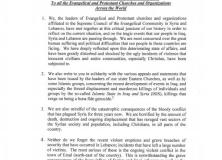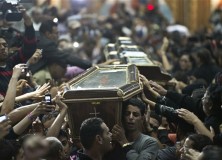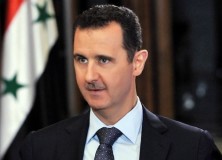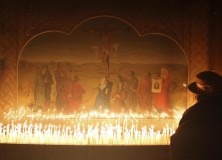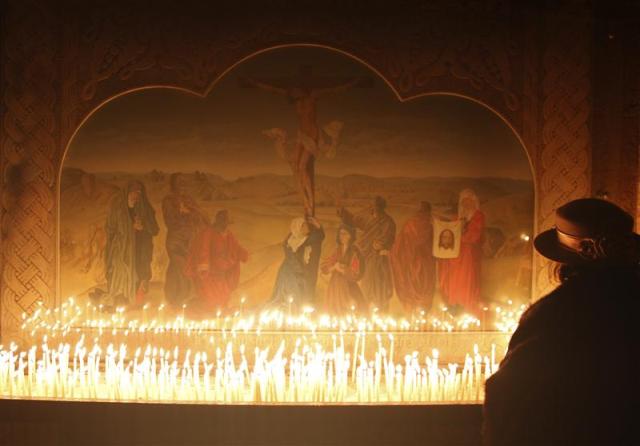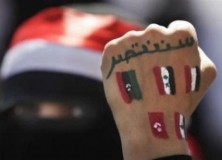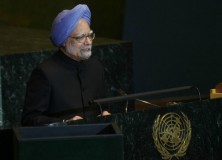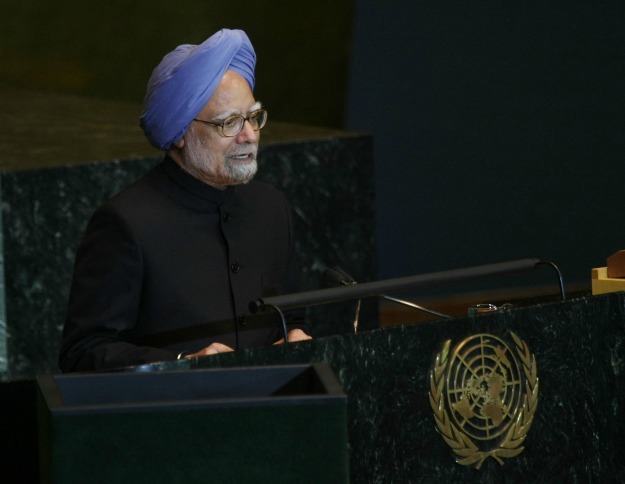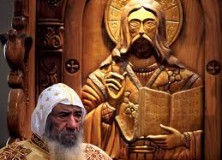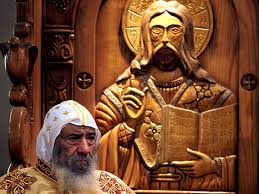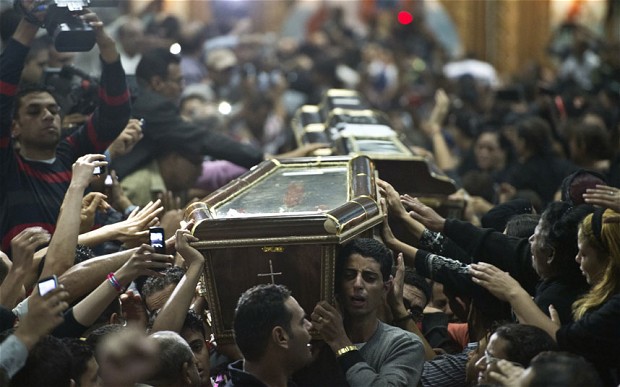 Across the world this week, hundreds of millions of us will be singing of that “silent night, holy night†in the town of Bethlehem. But as Christmas approaches, with its beguiling promise of “peace on earth and mercy mildâ€, how many of us will reflect on the words of our great Christmas carols and be reminded that Christianity was a faith born in the East? How many of us are aware that, while the first Christmas took place in the Middle East, there today that same faith is under threat?
Across the world this week, hundreds of millions of us will be singing of that “silent night, holy night†in the town of Bethlehem. But as Christmas approaches, with its beguiling promise of “peace on earth and mercy mildâ€, how many of us will reflect on the words of our great Christmas carols and be reminded that Christianity was a faith born in the East? How many of us are aware that, while the first Christmas took place in the Middle East, there today that same faith is under threat?
[The Telegraph, 21 dez 2013] Last week, the leader of the Catholic Church, His Holiness Pope Francis, chose to cast light on this dark story of persecution by taking to Twitter to warn that we “cannot resign ourselves to think of a Middle East without Christiansâ€.
Later in the week, Prince Charles warned that “Christians in the Middle East are, increasingly, being deliberately attacked by fundamentalist Islamist militants. Christianity was, literally, born in the Middle East and we must not forget our Middle Eastern brothers and sisters in Christâ€.
These were expressions of a growing concern that Christians are being deliberately targeted and attacked because of their faith. But why, when popes and princes are speaking up, have so many politicians here in the UK forsaken speaking out?
Across the Middle East, Christians have lived for almost two millennia in the place their faith was born, and since thrived within communities in Iraq, Syria, Egypt and elsewhere.
Indeed, the Ottoman Empire, which spanned much of today’s modern Middle East, was a multicultural state, with Christians cohabiting alongside Shia, Sunni, Jews, Alawites and Druze.
Yet today, the conflicts raging across the region – in Syria most acutely – are taking on an increasingly sectarian character. Since the start of the conflict in March 2011, more than 450,000 Christians have fled the country.
In Egypt, the plight of the Coptic Christians is of growing concern, with Amnesty International reporting that, this year, 207 churches were attacked and 43 Orthodox churches completely destroyed.
Christian persecution is growing across the Middle East, but tragically, the plight of Christians is global and not regional.
Research by the Pew Centre suggests that Christians are reportedly the most widely persecuted religious group in the world. Their evidence shows that, in 2011, religious groups faced harassment in 160 countries, and that Christians were harassed in the largest number of countries.
In Nigeria, Boko Haram, the militant Islamist group, are waging their bloody conflict and targeting church leaders. This month, there were reports of hundreds of houses being burnt down when members of the Boko Haram attacked Arboko village in Borno State, said to be inhabited by a small Christian community.
And in one brutal attack in Pakistan, in September this year, 81 Christians were killed when their church in Peshawar was targeted by suicide bombers, causing the Archbishop of Canterbury, Justin Welby, to describe the victims as Christian “martyrsâ€.
Members of my own denomination, the Church of Scotland, felt that same tragedy very personally when one of our number, Rev Aftab Gohar, minister in Abbotsgrange Church in Grangemouth, discovered that his 79-year-old mother, nephew, niece, two uncles and other friends and relatives were among 122 killed in the attack.
Rev Gohar is blessed with a strength of faith that enables him to offer forgiveness to those who have killed his family members – a powerful statement, bearing testimony to the enduring capacity of faith to nurture reconciliation.
But for such reconciliation to fully take root in our communities, we must first recognise and acknowledge the depth and extent of the divisions that need to be healed.
Thankfully, some politicians have begun to speak up. Last month, Baroness Warsi gave an important and under-reported speech in the United States warning that a “mass exodus is taking place, on a biblical scale. In some places, there is a real danger that Christianity will become extinctâ€. And, earlier this month, the DUP MP Jim Shannon secured a debate in the House of Commons on the persecution of Christians.
But why, given the scale of the suffering, are these still such lone voices?
Across the world, there will be Christians this week for whom attending a church service this Christmas is not an act of faithful witness, but an act of life-risking bravery.
That cannot be right, and we need the courage to say so.
In the UK today, perhaps through a misplaced sense of political correctness, or some sense of embarrassment at “doing God†in an age when secularism is more common, too many politicians seem to fear discussing any matters related to faith.
So the growing persecution of Christians around the world remains a story that goes largely untold, as does proper discussion of its complex roots and causes.
In some countries, this persecution is perpetrated in the name of a secular ideology, while in others it has its roots in religious intolerance.
So the perpetrators’ motivation is not the primary issue of concern, nor can it be a reason for ignoring the consequences; our neighbours are being attacked for their faith, and that can never be acceptable or justified, whatever the reason given.
People of all faiths and none should be horrified by this persecution. We cannot, and we must not, stand by on the other side in silence for fear of offence.
Of course, Christianity’s long history has had its bloodstained chapters, and of course other religious groups are today subject to persecution.
It is simply wrong for any faith to be persecuted. And yet, across the world, religious groups, of any faith, are being attacked for their beliefs. So, just like anti-Semitism or Islamophobia, anti-Christian persecution must be named for the evil that it is, and challenged systematically by people of faith and of no faith. To do so is not to support one faith over another – it is to say that persecution and oppression of our fellow human beings in the name of any god or ideology is never acceptable and is morally repugnant.
In this 21st century, we should be supporting the building of societies that respect human rights and the rule of law, and make clear that freedom of religion or belief is a universal concern. It is time to acknowledge this issue and speak up and stand with those who are suffering because of their beliefs.
Sixty-five years ago this month, the UN adopted the Universal Declaration of Human Rights.
Article 18 of that declaration states: “Everyone has the right to freedom of thought, conscience and religion; this right includes freedom … to manifest his religion or belief in teaching, practice, worship and observance.â€
This coming year, in March, the UK will assume its place on the UN Human Rights Council.
As part of that body, the UK Government will have a unique and timely opportunity to use this platform to speak up for religious freedom as a fundamental human right and speak out against the persecution of Christians.
Acknowledging this wrong is the surest basis on which to begin the journey to reconciliation shown to be possible by Rev Gohar’s faithfulness and hope.
And if the UK government does so, we, as the Opposition, will support them.
Douglas Alexander MP is shadow foreign secretary
